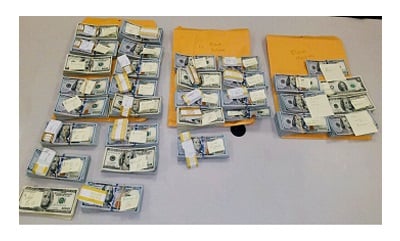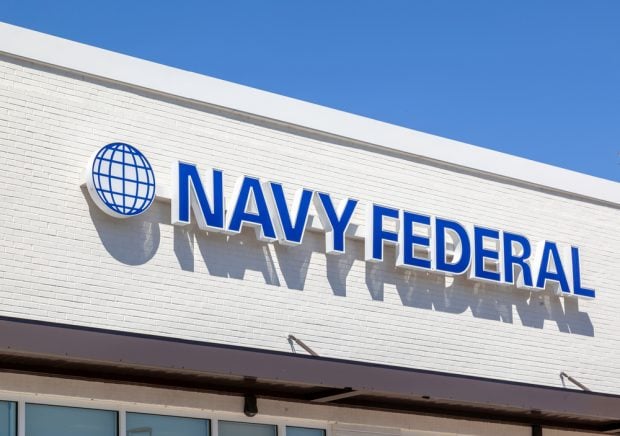 Cover sheet of the criminal complaint against Edward Rostohar.
Cover sheet of the criminal complaint against Edward Rostohar.
Former CBS Employees Federal Credit Union CEO Edward Rostohar said he was able to steal and conceal his $40 million embezzlement for 20 years because NCUA auditors "didn't really know what to look for" during examinations, according to court documents filed in U.S. District Court in Los Angeles.
In addition to Rostohar's insider knowledge as a former NCUA auditor, he also identified and exploited a weakness in the credit union's data processing system.
Recommended For You
The long-time president/CEO of the Studio City, Calif.-based credit union is in federal custody at the Metropolitan Detention Center in Los Angeles where he is awaiting a court hearing on April 18. He is expected to be indicted on bank fraud and aggravated identity theft felony charges.
 Money recovered from Suspect's residence. (Source: Los Angeles Police Department)
Money recovered from Suspect's residence. (Source: Los Angeles Police Department) As he was backing out of his driveway at his Studio City home on March 12, Los Angeles police apprehended Rostohar who was carrying a passport and $200,000 in $100 bills in the trunk of his 2018 Porsche. His fraud was detected on March 6 when a credit union employee found a $35,000 check made out to Rostohar, which led the employee to uncover $3.7 million in checks made payable to the former CEO. The checks had forged signatures of another credit union.
Before he joined CBS EFCU 30 years ago, the 62-year-old Rostohar worked for several years as an NCUA auditor.
"Because of that, Rostohar knew what NCUA auditors looked for in their exams and audits of the credit union," FBI Special Agent Alice Tsujihara said in a sworn affidavit. "Rostohar explained that the auditors themselves never operated a financial institution, and thus didn't really know what to look for. Rostohar knew how to respond to auditors so that his theft would not be discovered."
One of the items NCUA auditors looked for were quarter end records. To conceal his theft, Rostohar told the FBI that he adjusted the balance in the general ledger's clearing account through which expenses and income were processed.
Rostohar deposited fake income in this account, drawing the funds from the credit union members' certificate of deposits. However, the funds were not taken from individual member CDs, but from the overall CD balance held by the credit union. Then the real expenses would be processed through the account.
Another item NCUA auditors looked for was negative earnings, according to the affidavit. Rostohar altered the credit union's records so that it appeared the credit union was operating with positive earnings even if it was as little as $1,000.
Rostohar removed funds by altering the payees on the credit union checks, but he also identified and exploited a weakness in the ShareOne data processing system, according to court documents.
His theft process included pretending to withdraw funds from member accounts by using the credit union's data processing system to issue a check with a blank payee. He then manually typed the name and address of a member on the credit union receipt to ensure the bank records would show a member's name and address as the payee information. The check was then shown with a blank payee on the data processing system.
Funds to issue the check were withdrawn from a share account that belonged to the credit union and used as a clearing account. Once the credit union check was issued on the data processing system, Rostohar then manually typed a payee of his choosing, most often reflecting his name or an associated party name and deposited the altered check in one of his Citibank or Chase Bank accounts, according to court documents.
Rostohar managed to fund the credit union's clearing account after he identified and exploited a weakness in the ShareOne data processing system, the FBI affidavit said.
He posted entries to the general ledger account, which reflected the aggregate of all deposits held in the individual member share accounts listed on the member share and loan trial balance. According to court documents, Rostohar made a general ledger entry by moving a deposit to the credit union's clearing account; this enabled him to withdraw money out of the credit union's account by issuing a credit union check through Catalyst Corporate Federal Credit Union based in Plano, Texas, with offices in California, Georgia and Hawaii.
Court documents indicate that Catalyst Corporate CU received several complaints from members of unauthorized transaction and withdrawals from their accounts.
Rostohar told investigators he gambled away much of the money and spent the rest on traveling by private jet, buying expensive watches, and giving his wife a weekly allowance of $5,000. He also bought two cars – a Porsche and a Tesla – with money he pilfered from the credit union, according to court documents.
The former executive also told federal investigators that he opened a café in Reno with his business partner, Ellen Burcham, and he purchased real estate there. Additionally, he made a down payment on a Reno home with stolen money from the credit union.
Rostohar also was a co-owner of a condominium in Cabo, Mexico.
Linda Tlemsani, Rostohar's wife, "did not appear to know the magnitude of the theft," FBI Special Agent Tsujihara said in her affidavit.
Tlemsani said she spent the $5,000 weekly allowance on food, clothes and expense related to her work as an aspiring recording artist, noting that producing a music video and taking various classes was very expensive, but that she hoped to become a recording artist in the near future.
It was Rostohar's wife who called Tsujuhara and LA police informing them that her husband was panicking, planning to leave the country and threatening to take his life. When police arrived at his home, Rostohar was in his bedroom packing. He managed to slip into his car but was apprehended by police as he was driving out of his driveway where he was arrested.
© Touchpoint Markets, All Rights Reserved. Request academic re-use from www.copyright.com. All other uses, submit a request to [email protected]. For more inforrmation visit Asset & Logo Licensing.







